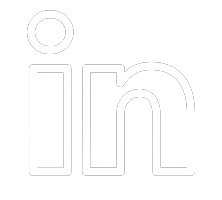Up to 90% Financing! Available for any project. Some restrictions apply. See Details

Website Design Costs
June 29, 2023
A well-designed website is what enhances your online presence and engages your visitors. Since web design is so important to businesses and their success rates, taking the time to perfect your website is essential. When it comes to budgeting, finding the right balance between cost and quality can be challenging. Web design costs can vary significantly depending on several factors.
Understanding Web Design Costs
Scope and Complexity – The complexity of your website plays a significant role in determining costs. A simple website design will generally be less expensive than a multi-page e-commerce platform with extensive functionality. When deciding what is best for you, consider your goals, the number of pages, the need for custom features, and any integration requirements to gauge the necessities for your project.
Design Customization – The level of design customization will impact your costs. Website templates or pre-designed themes tend to be typically more affordable, while fully custom designs tailored to your brand’s unique identity and goals will be more expensive. Find a balance between design quality and your available budget to ensure a visually appealing website that represents your brand effectively.
Development and Functionality – If your website requires advanced functions such as user login systems database integration, or content management systems, development costs will increase. Complex functionality often requires more time and expertise from web developers, affecting the overall price.
Responsive Design – The mobile-driven world should be an important factor when ensuring your website is responsive and adapts seamlessly to different screen sizes. This requires additional effort and testing, as well as a keen eye for user experience. While it may increase costs, it is a worthwhile investment to provide an optimal browsing experience across various devices.
Ongoing Maintenance and Support – Consider the long-term costs associated with website maintenance, updates, and technical support. Regular updates, security patches, and bug fixes are crucial to keep your website running smoothly. These costs must be factored in when budgeting to keep your website up to date and perform optimally over time.
Determining Your Budget
Define Your Goals – Clearly outline your website’s purpose, target audience, and expected outcomes. This will help you determine the features and functionality you need and prioritize your budget accordingly.
Research and Compare – Look for reputable web design agencies or freelance designers with a proven track record. Request quotes from multiple sources and compare their portfolios, client reviews, and the value they offer within your budget range.
Set Realistic Budget – Prepare to invest a reasonable amount in web design to ensure quality and effectiveness. While it is tempting to opt for the cheapest option available, remember that a poorly designed website can have a negative impact on your brand image and user experience.
Consider Scalability – If your business has the potential for growth, factor in scalability when budgeting. Investing a little more upfront for a scalable design can save you significant expenses when expanding your website’s features and functionality.
Seek Professional Advice – If you are unsure about budgeting for web design, consult with professionals who can provide insights on your specific needs and budget constraints. They can help you to navigate the complexities of web design costs and guide you towards the best solution.
There is no one-size-fits-all website design or a guide with how much you should be spending. A well-designed website is an investment that can yield substantial returns in terms of increased visibility, user engagement, and business growth.
Check out our website for more information to help gain an even better understanding of what we do. Our website also includes endless amounts of successful projects and where our clients come from. On our website you will also have access to information on the members of our team. We are also active on social media accounts like Facebook, LinkedIn, and Twitter providing more detail on what our goals are for the clients we work with. Let us help turn prospects into customers through awareness, consideration, conversion, and loyalty.
Customer Testimonial
June 23, 2023
Consumers have an abundance of choices and information at their fingertips therefore the importance of customer testimonials and reviews cannot be overstated. Business operations have transformed due to these powerful tools and now operate at a larger scale and connect easier with the target audience. Customer testimonials and reviews serve as social proof, building trust, credibility, and influencing purchasing decisions. There is a significant impact of customer testimonials and reviews on businesses and why they should be an essential part of your marketing strategy.
The Power of The Tools
● Building Trust and Credibility – Gaining the trust and confidence of potential customers is crucial. Customer testimonials and reviews act as unbiased endorsements from satisfied customers to verify the quality and reliability of your products and services. Sharing experiences with potential customers helps alleviate doubts and build trust in your brand.
● Enhancing Reputation – Your reputation can make or break your business. Online reviews provide a platform for customers to express their opinions and share their experiences. Positive feedback shares your commitment to customer satisfaction, while negative reviews offer an opportunity for improvement and prompt you to address any concerns. Engaging with customer feedback demonstrates transparency and a genuine interest in providing the best possible experience.
● Influencing Purchasing Decisions – The modern customer is savvy, and research oriented. Before making a purchase, they seek validation from others who have already used the product or service. A vast majority of consumers trust online reviews and consider them as influential as personal recommendations. By prominently featuring customer testimonials and reviews on your website, social media platforms, and review websites, you provide potential customers with valuable insights and sway their purchasing decisions in your favor.
● Increasing Conversion Rates – The ultimate goal of any business is to convert leads into paying customers. Your conversion rates will be greatly impacted once incorporating customer testimonials and reviews in your marketing strategy. Positive reviews act as persuasive triggers, reassuring potential customers that they are making the right choice. Showcase the positive experiences of satisfied customers and create a sense of urgency and encouragement for prospects so they are required to act.
● Improving Search Engine Rankings – Search engines consider user-generated content, including customer testimonials and reviews, when determining search result rankings. Steady streams of positivity within the reviews indicates to search engines that your business is trustworthy. This can improve your website’s visibility, driving organic traffic and attracting more potential customers. Encouraging customers to leave reviews and testimonials can benefit your search engine optimization efforts.
● Encouraging Feedback and Continuous Improvement – Customer testimonials and reviews provide valuable feedback that can help you understand your customers needs and preferences more accurately. They offer insights into what aspects of your products or services are working well and what areas can be improved. Actively listening to customer feedback and making necessary adjustments can continually enhance your offerings and stay ahead of competitors.
In the highly competitive business landscape, customer testimonials and reviews have become indispensable tools for success. Embracing customer testimonials and reviews as part of your marketing strategy will not only strengthen your relationship with existing customers but also attract new ones. Harness the power of social proof and let your customers become advocates, propelling your business towards greater heights.
Check out our website for more information to help gain an even better understanding of what we do. Our website also includes endless amounts of successful projects and where our clients come from. On our website you will also have access to information on the members of our team. We are also active on social media accounts like Facebook, LinkedIn, and Twitter providing more detail on what our goals are for the clients we work with. Let us help turn prospects into customers through awareness, consideration, conversion, and loyalty.
Customer Research
June 16, 2023
Having a strong online presence is crucial for businesses of all sizes in the digital world we live in. The quality of your website can significantly impact the success of your company. Websites have the power to attract potential customers, boost credibility, and facilitate conversations and relationships. Creating a website to the level of effectiveness a company desires requires the expertise of a skilled web designer. When deciding to work with a website designer, it is important for a customer to do research. Customer research helps choose a web designer that fits your wants and needs to develop a positive and beneficial relationship.
Why Is Research Important?
● Understanding Your Needs – Researching before hiring a website designer allows you to properly identify and understand your specific needs. Take the time to define your goals, target audience, and desired functionality for your website. Creating a clear vision of what you want to achieve helps to effectively communicate your requirements to potential designers. With this understanding you are able to narrow down the web designer that will work best for you while allowing them to provide you better guidance and solutions for your business goals.
● Assessing The Designer’s Portfolio – Researching different website designers gives you the opportunity to review their portfolios and evaluate their past work. Examining these portfolios helps assess the quality of their designs, their creativity, and their ability to create websites that align with your industry or niche. There will be a designer that compliments the style and aesthetic of your business enhancing a successful collaboration.
● Checking Client Testimonials – Customer testimonials and online reviews are valuable resources that provide insight on a designer’s reputation, credibility, and work ethics. Reading what previous clients have to say about their experience can help you gauge the designer’s professionalism, communication skills, ability to meet deadlines, and overall customer satisfaction. Positive reviews and recommendations are a good indication of the reliability of the designer.
● Understanding The Designer’s Expertise – There are multiple different levels of the broad area that is website design. Not all website designers possess the same skill set or specialize in the same areas. Some designers excel in creating visually stunning designs, while others may focus more on user experience or e-commerce functionality. Researching allows you to identify designers who specialize in the specific features and functions that are essential for you and your business. Creating a successful outcome starts with selecting a designer that possesses the necessary expertise in your desired areas.
● Comparing Pricing and Services – Researching different website designers enables you to compare the prices and services that they offer. Although cost should not be the sole determining factor, it is important to find a designer who offers the services you need while remaining within your ideal budget. Most web designers have various packages that you can choose from, and those packages come with different services and pricing options. The range of services you will see in these packages include things like web development, content creation, and ongoing maintenance.
Finding a designer who offers comprehensive services tailored to your needs can save you time and effort in the long run. Working with a website designer is a significant investment for any business. Conducting thorough research before making a decision ensures that you choose a designer who understands your requirements. A well-designed website is an invaluable asset that can propel your business to new heights in the digital realm.
Check out our website for more information to help gain an even better understanding of what we do. Our website also includes endless amounts of successful projects and where our clients come from. On our website you will also have access to information on the members of our team. We are also active on social media accounts like Facebook, LinkedIn, and Twitter providing more detail on what our goals are for the clients we work with. Let us help turn prospects into customers through awareness, consideration, conversion, and loyalty.
Provide Useful Feedback
June 9, 2023
You’re working with a web designer; it’s time to report with feedback. Where do you start? When working on collaborative projects it is important to master the art of giving useful feedback for clear and concise communication. Effective feedback is one of the most essential aspects of collaboration. Clear and constructive feedback ensures that your vision is translated into a visually appealing and high functioning website. There are valuable tips on how to give your web designer useful feedback to ensure a smoother designing process and a website that exceeds your expectations.
Valuable Tips
● Understand Your Goals – Before providing feedback, you need to have a clear understanding of your goals and objectives for the website. When deciding what is most important to you, be sure to keep in mind factors like your target audience, brand identity, and purpose of the website. The more specific and relevant the feedback given is, the better your web designer can perform.
● Specify – The more specific and clear you can be about your wants and needs the greater the chances that they are executed efficiently. Vague feedback can lead to confusion and delays in the design process. Clearly bring attention to the factors you like and or dislike to your designer. Be sure to give thorough explanations as to why you feel that way to avoid future conflict. The more specific you can be about the corrections you wish to see the easier it will be for your designer to understand and make changes.
● Use Visual References – There is a challenge in articulating your preferences into words accurately. To bridge this gap, gather visual references that align with the vision at hand. Share links to websites or design ideas that resonate with your desired color scheme, style, typography, or layout. Visual references can provide your web designer with a tangible starting point and enhance understanding between the two of you.
● Provide Context – In order for your web designer to grasp the purpose and requirements of your website, providing contextual information is necessary. Share details about the industry you operate in, the target audience, and any unique features or functionalities you require, Web designers can better tailor the design to meet your needs if they are educated on your specific business and goals.
● Offer Balanced Feedback – Constructive feedback is about finding a balance between highlighting the aspects you like and pointing out areas for improvement. Remember to appreciate the elements that are working well and provide useful suggestions for enhancements. Emphasizing both positive and negative aspects encourages your web designer and contributes to a more collaborative environment.
● Prioritize Issues – If there are multiple aspects to address, prioritize them to help your web designer focus on the most critical challenges first. This approach streamlines the design process and ensures that your designer can allocate appropriate time and resources in the most effective way. Start with fundamental elements like layout, color scheme, or navigation before moving on to finer details.
● Avoid Micromanaging – It is essential to provide feedback and be involved but it is equally important to trust your designer and their expertise. Avoid micromanaging or dictating every small design decision. Remember your web designer is a professional who brings an abundance of skills and knowledge to the table. Provide feedback within the context of your goals and allow them the creative freedom to explore solutions.
To achieve a website that truly reflects your vision, giving useful feedback to your web designer and enhancing your collaborative methods is crucial. By understanding your goals, being clear and concise, providing context, and offering balanced feedback you can ensure that you will reach all your wants and needs while having open communication with your designer. Stay actively engaged throughout the project and continue to build a relationship with your designer so it is easier to trust their expertise. Together you and your web designer will create an outstanding website that includes everything you wanted and more delighting your audience.
Check out our website for more information to help gain an even better understanding of what we do. Our website also includes endless amounts of successful projects and where our clients come from. On our website you will also have access to information on the members of our team. We are also active on social media accounts like Facebook, LinkedIn, and Twitter providing more detail on what our goals are for the clients we work with. Let us help turn prospects into customers through awareness, consideration, conversion, and loyalty.
Questions for Consultancies
June 1, 2023
Starting a new website development project is an exciting endeavor, from revamping your current strategies to creating a brand-new site. Before diving into the process, it is essential to have a thorough consultation with your website development team. This consultation serves as a crucial foundation for a successful project and ensures that the vision in motion aligns with the expertise of the developers. Conversations like this help gain clarity, set expectations, and ultimately create a website that exceeds your goals.
Questions to Ask
● What are your qualifications and expertise? – The perfect start to a new relationship is getting to know the people you are working with. Start by inquiring about the website developers’ qualifications and experience. Ask about their expertise in different programming languages, content management systems, and technologies that are relevant to your project. Understanding their capabilities and past projects will help you gauge their competence and suitability for your specific wants and needs.
● Can you provide examples of your previous work? – Most website developers will have some form of portfolio allowing you to see all the previous projects they have successfully completed. Requesting samples of previous projects will allow you to assess the quality, creativity, and style of the website development team. Look for diverse examples that demonstrate their ability to create websites with different functionalities and aesthetics. In doing so, you will be able to determine if their portfolio aligns with your desired outcomes.
● What is your approach to website development? – Understanding the website development process is vital for managing expectations and ensuring smooth collaboration. Ask the team you are working with to outline their typical workflow, discuss topics like discovery, design, development, and testing. This will give you insights into their methodology, timeline, and how they go about handling feedback and revisions.
● How do you ensure the website is user friendly and responsive? – There is nothing more important to a well-designed website than being user-friendly and working seamlessly across different devices. Ask about the website developer’s approach to user experience design and responsive web design. Note if they conduct usability testing and optimize websites for mobile devices. Positive user experience is essential for attracting and retaining visitors.
● What content management system do you recommend? – Content management systems allow you to manage and upgrade your website content easily. Based on your project’s requirements, there should be a system that the website developers will recommend. Current popular options include WordPress, Drupal, and Joomia. Discuss the advantages and disadvantages for each option, as well as the developer’s expertise in working with the recommended option.
● Will the website be optimized for search engines? – A website’s visibility in search engine results is so important for attracting organic traffic. The developers should have knowledge to share about the best practices on search engine optimization and their approach. Ask how they plan to implement elements such as metadata, schema markup, and site speed optimization to enhance your website’s search engine visibility.
● What are the ongoing maintenance and support options? – Websites require regular maintenance to ensure they remain secure and up to date. Ask about the developer’s post-launch support options. Will they provide regular updates, security, and backup for you? Understand the associated costs and timelines for ongoing maintenance to ensure your website remains functional and secure in the long run.
● Can you integrate third-party services or custom features? – If you have specific requirements or custom features, discuss them with the development team. Ask about their experience with integrating third- party services and their ability to create custom functionalities tailored to your needs.
Successful website development consultation is a valuable step towards creating a website that aligns with your goals and engages your target audience. By asking the right questions, you gain insights into the website developer’s capabilities and approach. This knowledge empowers you to make informed decisions and ensure a smoother development process. An open and collaborative consultation sets the stage for a blossoming partnership and a website that shines in today’s digital landscape.
Check out our website for more information to help gain an even better understanding of what we do. Our website also includes endless amounts of successful projects and where our clients come from. On our website you will also have access to information on the members of our team. We are also active on social media accounts like Facebook, LinkedIn, and Twitter providing more detail on what our goals are for the clients we work with. Let us help turn prospects into customers through awareness, consideration, conversion, and loyalty.




